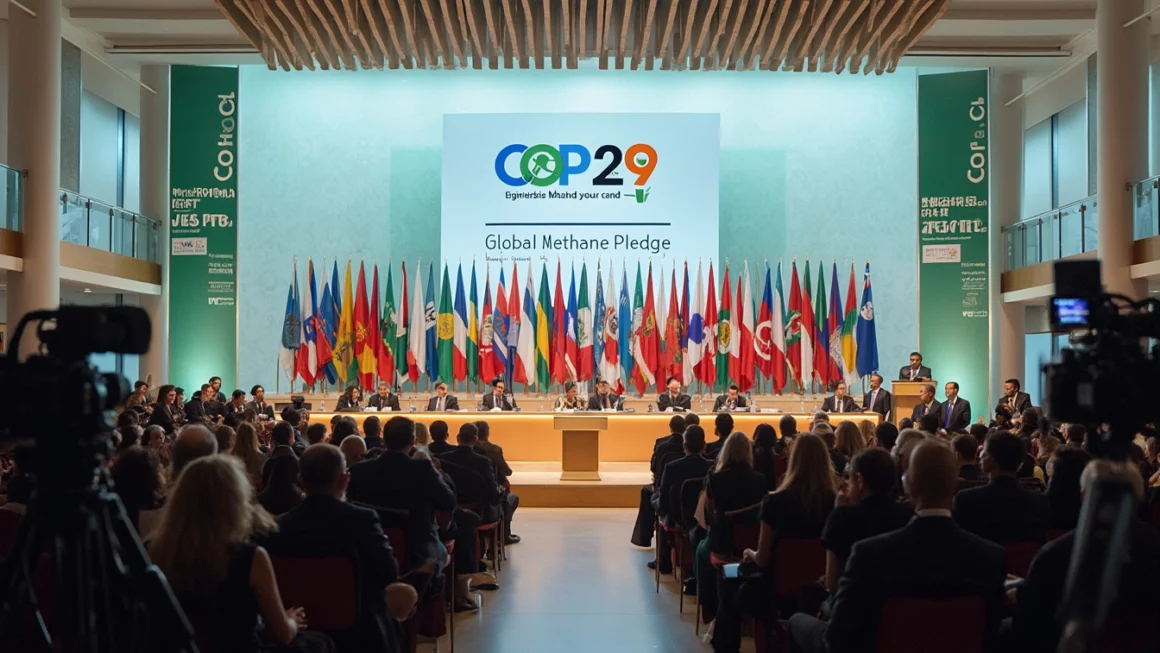The recent COP29 Global Methane Pledge Ministerial meeting marked a significant milestone in the global effort to combat climate change. This high-level gathering brought together key stakeholders from around the world to address one of the most pressing environmental challenges of our time: methane emissions.
The Global Methane Pledge: A Crucial Initiative
Table of Contents
Launched in 2021, the Global Methane Pledge aims to reduce methane emissions by 30% below 2020 levels by 2030. This ambitious goal has gained tremendous support, with over 150 countries now committed to the cause. The recent ministerial meeting served as a platform to reinforce this commitment and showcase the progress made thus far.
Key Highlights from the Ministerial
Expanding Membership
One of the most notable outcomes of the meeting was the addition of new countries to the pledge. This expansion demonstrates the growing global consensus on the urgency of addressing methane emissions. As more nations join, the collective impact of the initiative continues to grow, bringing us closer to achieving significant reductions in global methane levels.
Financial Commitments
The ministerial saw substantial financial pledges from various countries and organizations. These funds are crucial for implementing methane reduction strategies, particularly in developing nations. The financial support will help in adopting new technologies, improving infrastructure, and implementing policies aimed at curbing methane emissions across various sectors.
Technological Advancements
Participants highlighted numerous technological innovations that are paving the way for more effective methane detection and reduction. From satellite monitoring systems to advanced leak detection tools, these technologies are essential in identifying and addressing methane sources more efficiently.
Sector-Specific Strategies
The meeting focused on developing targeted approaches for major methane-emitting sectors:
Agriculture
Discussions centered on sustainable farming practices, improved livestock management, and innovative feed solutions to reduce methane emissions from agricultural activities.
Energy
Strategies for the energy sector included enhancing leak detection and repair in oil and gas operations, and promoting the transition to cleaner energy sources.
Waste Management
Improved waste management techniques, including better landfill practices and waste-to-energy solutions, were highlighted as key areas for methane reduction.
International Collaboration
The ministerial emphasized the importance of global cooperation in tackling methane emissions. Participants discussed ways to share best practices, transfer technologies, and provide support to countries in need. This collaborative approach is crucial for achieving the pledge’s ambitious goals.
Challenges and Future Directions
Despite the progress, several challenges were identified:
- The need for more accurate methane measurement and reporting systems
- Addressing the varying capacities of different countries to implement reduction measures
- Ensuring consistent policy frameworks across nations
To address these challenges, the ministerial outlined future directions, including:
- Enhancing global methane monitoring capabilities
- Developing more targeted financial mechanisms to support reduction efforts
- Strengthening international partnerships for knowledge and technology sharing
The Role of Automation in Methane Reduction
As we look towards implementing these strategies, automation plays a crucial role in enhancing efficiency and accuracy. Automation tools can significantly improve methane monitoring, data collection, and reporting processes, making it easier for countries and organizations to track their progress and identify areas for improvement.
Conclusion
The COP29 Global Methane Pledge Ministerial meeting represents a significant step forward in the global fight against climate change. By bringing together diverse stakeholders, securing new commitments, and outlining clear strategies, the meeting has set the stage for accelerated action on methane reduction. As we move forward, continued collaboration, innovation, and dedication will be key to realizing the ambitious goals of the Global Methane Pledge and creating a more sustainable future for our planet.




